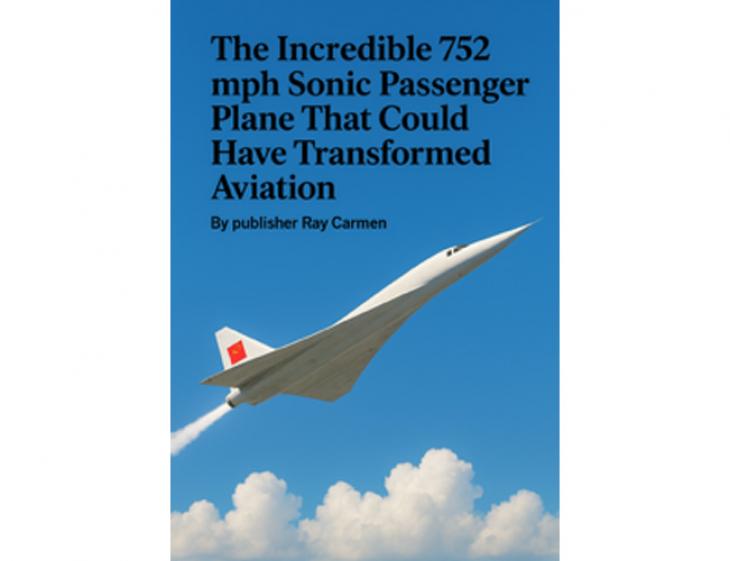
By Publisher Ray Carmen
In the late 20th century, engineers around the world were racing toward one audacious dream — a passenger plane that could break the sound barrier while keeping comfort, safety, and affordability intact. One design promised to do just that: a sonic jet capable of cruising at 752 mph, blending commercial convenience with near-military velocity.
Had it flown, this aircraft would have rewritten aviation history , cutting transatlantic flight times to just over three hours, and redefining luxury travel for a new generation of global citizens.
Dubbed “the sonic arrow” by designers, the project attracted global attention for its cutting-edge aerodynamics and futuristic silhouette. Yet, despite its immense promise, rising costs, fuel challenges, and changing political winds grounded the dream before take-off.
Today, as aerospace companies revisit supersonic travel through green fuels and advanced composites, this forgotten marvel stands as a symbol of what might have been , proof that the desire to go faster, higher, and bolder never truly disappears.
For aviation lovers, it remains a haunting masterpiece of innovation that almost changed the skies forever.




